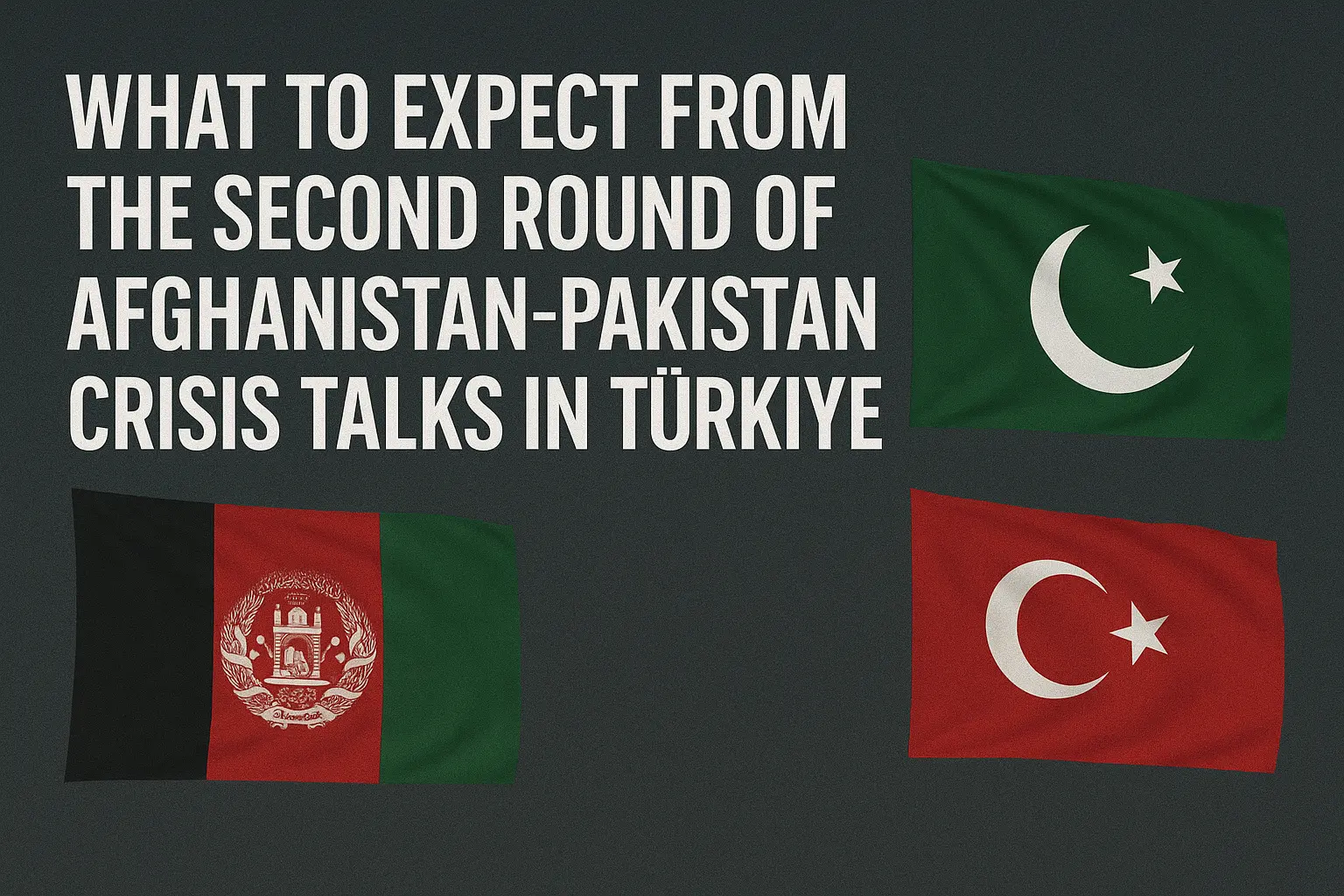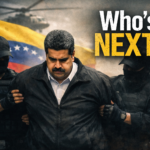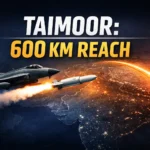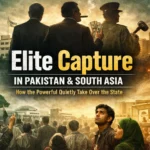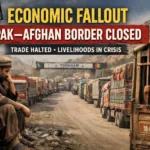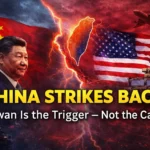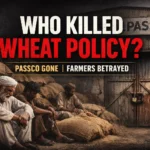Honestly, when you see headlines about Afghanistan and Pakistan, your first thought is probably border tensions, right? It’s a sad pattern that repeats itself.
But something different is happening right now in Istanbul, Türkiye.
Just weeks after a frightening escalation that included airstrikes and border clashes the deadliest friction in years, to be frank high-level delegations from Pakistan and Afghanistan are meeting again. This is the second round of crisis talks, following the emergency discussions in Doha, Qatar.
Why does this matter to you? Because the stability on this border directly affects not just Pakistan’s security but also regional trade, your daily gas prices, and the overall peace of South Asia.
The truth is, while the Doha talks stopped the shooting, they didn’t fix the core problems. That’s the heavy task for the Istanbul talks. If these new discussions fail, one senior official even warned of a potential “open war,” which is a terrifying thought.
Let’s dive into what’s really being discussed and why this meeting is a make-or-break moment.
The Unspoken Truth: Why They Need to Talk
Think about a fight with your neighbor. You can shout and threaten, but eventually, someone has to call a mediator, or you both suffer. That’s the core of the current situation between Islamabad and Kabul.
The crisis talks were triggered by a major spike in violence this October 2025. Pakistan conducted airstrikes into Afghan territory, targeting groups it accuses of launching attacks inside Pakistan. Afghanistan retaliated with heavy fire along the border. Dozens of people were killed on both sides.
Most blogs just list the dates and casualties, but let’s focus on what actually works to solve this: Dialogue.
The first meeting, held in Doha, Qatar, was a success just because it achieved an immediate ceasefire. It was a fire-fighting exercise. The delegations agreed on two things:
- An immediate and permanent ceasefire.
- The need to establish mechanisms to strengthen long-term peace.
The Istanbul round, hosted by Türkiye, is where the “mechanism” part gets worked out. It’s the critical step from stopping the war to building the peace.
The Serious Faces at the Table: Who is Negotiating?
This is where the details matter, and honestly, this is a gap many reports miss. These aren’t just junior diplomats talking; these are high-stakes, security-focused discussions led by top officials.
The presence of these security chiefs underlines how serious the threat of escalation really is.
Pakistan’s Delegation 🇵🇰
The talks have been led by the most senior security officials. For the first round in Doha, the Pakistani delegation was led by Defence Minister Khawaja Muhammad Asif, a very senior political figure.
However, for the second round in Istanbul, the delegation is smaller and more technical, featuring security officials from key agencies. This suggests a shift from high-level politics (Doha) to the gritty details of implementation (Istanbul).
Afghanistan’s Delegation 🇦🇫
The Afghan side, representing the interim Taliban administration, is led by an official focused on internal security matters.
For the Istanbul talks, the delegation is headed by Haji Najib, who serves as the Deputy Minister of the Interior for the current administration. This choice shows that Afghanistan views the core issue as a border management and internal security problem rather than purely a foreign policy issue.
The Two Biggest Problems on the Table 💣
If you want to understand the talks, you have to know the two massive issues that cause all the trouble.
1. The TTP (Tehrik-i-Taliban Pakistan) Conundrum
This is the main driver of the conflict. Pakistan has consistently accused the Afghan authorities of not taking action against the TTP—a separate, but ideologically linked, militant group.
- Pakistan’s View: The TTP has been using Afghan soil as a safe haven to plan and execute attacks, especially in Khyber Pakhtunkhwa. Pakistan wants verifiable, concrete action, not just promises. The security situation has worsened dramatically this year; 2025 is on track to be one of the deadliest years for security incidents in a decade.
- Afghanistan’s Response: They deny harboring the TTP and stress their long-standing policy that “Afghan soil will not be used against any other country.” However, the strong ethnic and historical ties between the Afghan Taliban and TTP make any real crackdown politically difficult for them.
2. The Durand Line Dispute
Here’s the part no one talks about enough: the 2,640-kilometer border itself. Pakistan sees it as an international boundary and has fenced most of it. Afghanistan, however, has never officially recognized this colonial-era demarcation.
This dispute means:
- Afghan forces sometimes actively oppose Pakistan’s fencing and border checks.
- It complicates counter-terrorism efforts because there’s no mutual respect for a clear line of control.
- The political dispute makes a joint monitoring mechanism incredibly hard to agree on.
What Makes the Türkiye Talks Different? (The Istanbul Agenda)
The Istanbul meeting’s biggest gap-filling task is to move from a temporary handshake to a permanent, workable system.
The Make-or-Break Agenda Item: The Monitoring Mechanism
Pakistan has made it clear: they are looking for a concrete and verifiable monitoring mechanism. This is the key difference between this round of talks and all past failed attempts.
Think of it like this: In Doha, they agreed to stop fighting. In Istanbul, they have to agree on who will watch whom and what the penalty will be if someone breaks the rules.
- Joint Technical Committees: The talks are likely focusing on setting up joint teams (military and intelligence) to share real-time information and coordinate action against militant safe havens.
- Neutral Verification: This is where Türkiye and Qatar’s mediation role becomes crucial. They might be asked to provide technical assistance or even a neutral presence to verify border security steps.
The Role of Türkiye and Qatar: Why They are the Perfect Mediators
Why is a country like Türkiye, far from the physical border, so important?
Both Qatar and Türkiye have unique strengths that make them ideal for this difficult task:
| Mediator | Strategic Advantage | Why it Works |
| Qatar 🇶🇦 | Diplomatic history with the Afghan Taliban | Hosted the Doha talks that brought the Afghan Taliban to the global table. They have trust and direct access that other countries lack. |
| Türkiye 🇹🇷 | NATO member with deep cultural/religious ties | Offers a neutral venue in a key strategic location (Istanbul) and has strong, trusted relationships with both Pakistan and the wider Muslim world. |
In my experience, having a mediator who is respected by both sides is what really makes the difference between a broken ceasefire and a lasting agreement.
Three Possible Outcomes for the Istanbul Talks
The officials are behind closed doors right now, and the world is waiting. Here’s what could happen:
1. The “Fragile Consensus” Outcome (Most Likely)
- What it means: Both sides agree in principle to a monitoring mechanism and set up a timeline for technical teams to meet. They agree to share intelligence but don’t commit to joint military action.
- Result: This maintains the ceasefire but leaves the core TTP issue unresolved, making future flare-ups likely, but not immediate.
2. The “Breakthrough” Outcome (Hoping for This)
- What it means: A detailed agreement is signed. Afghanistan makes a specific, verifiable commitment to displace or contain TTP elements, perhaps in exchange for increased humanitarian or economic cooperation from Pakistan.
- Result: A significant de-escalation that allows for border crossings to fully reopen and trade to resume, boosting both fragile economies.
3. The “Stalemate” Outcome (The Warning)
- What it means: The talks collapse because neither side is willing to compromise on their core demands (Pakistan’s security vs. Afghanistan’s sovereignty).
- Result: The ceasefire is abandoned, and as Pakistan’s defense minister cautioned, the risk of a major military escalation—an “open war”—becomes very real.
Honestly, the stakes couldn’t be higher. For the millions of people who live along that border, their safety depends on the decisions made in a quiet room in Istanbul.
❓ People Also Ask (FAQ Style)
Q: Why did the border clashes escalate so much this October 2025?
A: The main trigger was Pakistan’s decision to conduct airstrikes inside Afghanistan in early October. Pakistan said it was targeting militant groups (like the TTP) responsible for attacks on its side. Afghanistan called this a violation of its sovereignty, leading to retaliatory cross-border firing and a rapid, deadly escalation.
Q: What is a “verifiable monitoring mechanism” and why is Pakistan demanding it?
A: A verifiable monitoring mechanism is a formal agreement that allows both countries (and possibly the mediators, Türkiye/Qatar) to check and confirm that the commitments are being honored. Pakistan is demanding it because previous promises by Afghan authorities to curb militant groups were not followed by action, resulting in a surge of attacks. It’s about trust and accountability.
Q: How does the border closure affect trade and the economy?
A: It’s a huge problem. When the main border crossings like Torkham and Chaman are shut, the flow of goods stops completely. This impacts Afghanistan, which relies heavily on Pakistan for trade access, and costs Pakistani traders and transporters millions daily. This economic pressure is a silent incentive for both sides to find a lasting peace.
Final Thoughts: Hope on the Horizon
The simple fact that Afghanistan and Pakistan are back at the table in Türkiye, after such intense violence, shows that neither side truly wants a full-blown conflict. They understand the cost is too high.
The real solution lies not in more ceasefires, but in creating a system of mutual accountability that is firm, fair, and possibly enforced by trusted partners like Türkiye and Qatar. It’s a complex diplomatic puzzle, but for the sake of regional peace and the millions of lives on both sides of the Durand Line, we have to hope they can finally find all the missing pieces in Istanbul.
This article will be updated regularly with new insights as the Istanbul talks progress.
